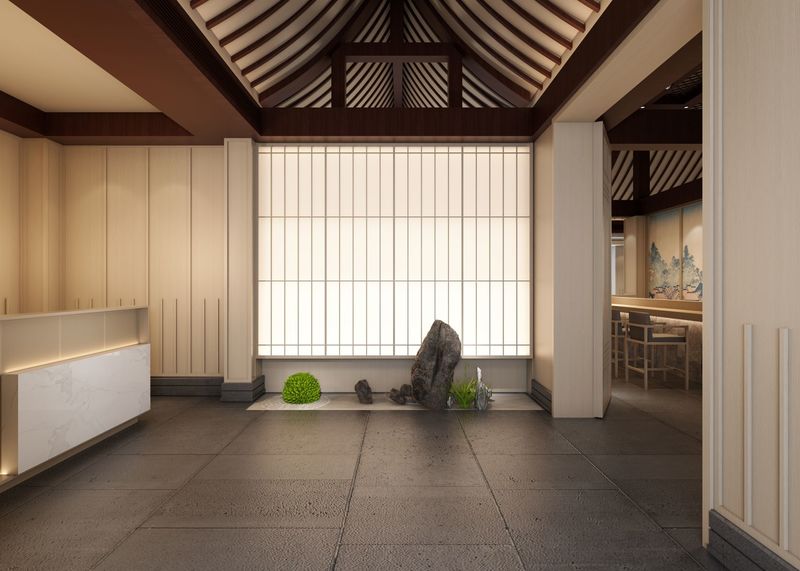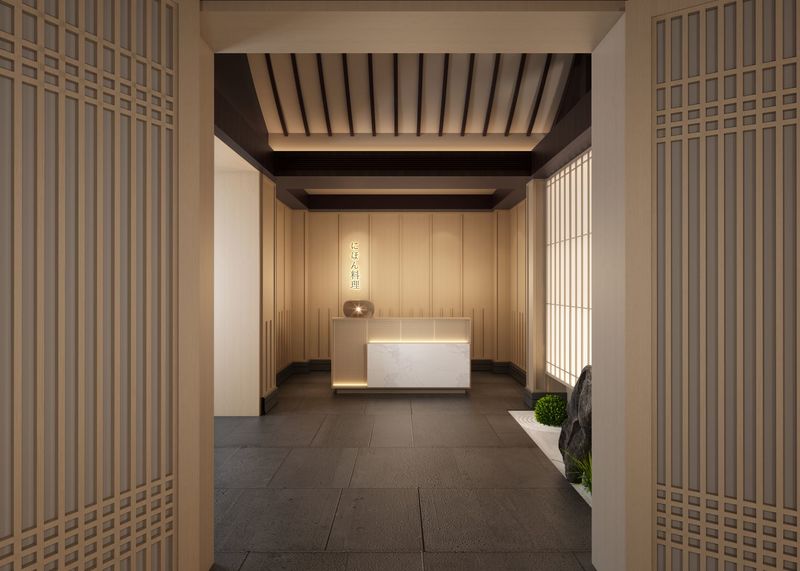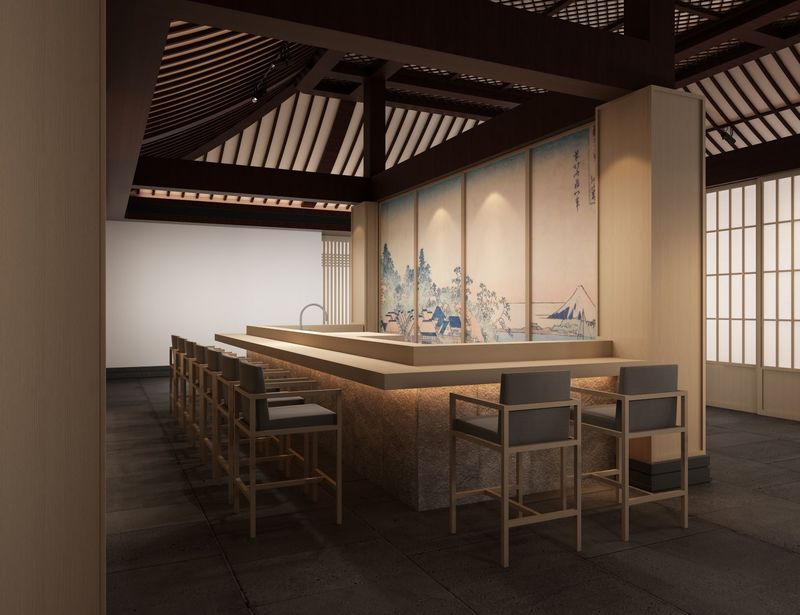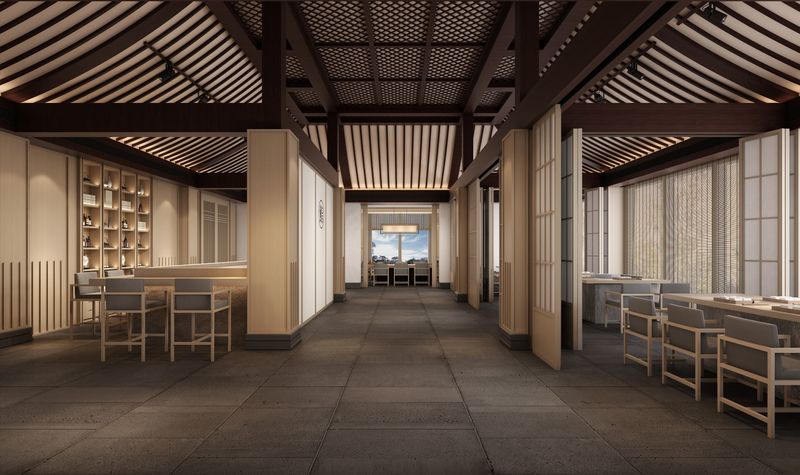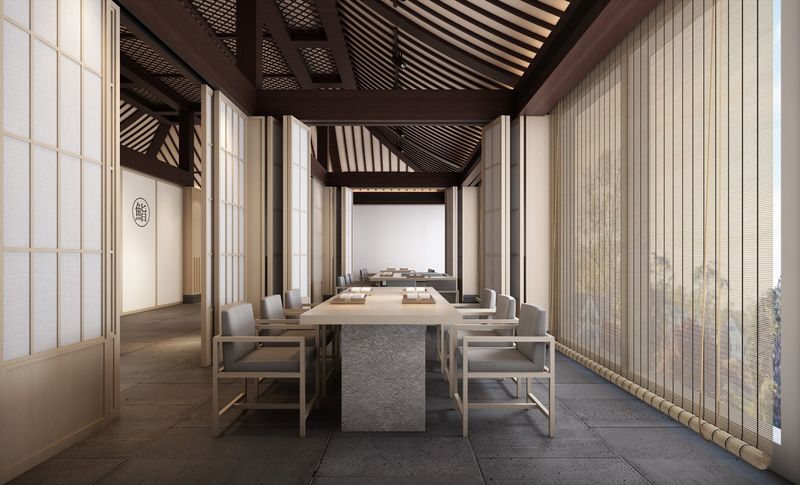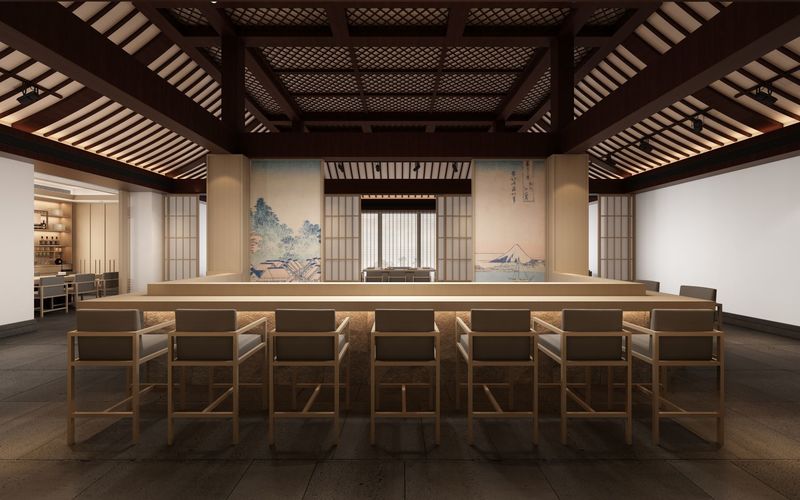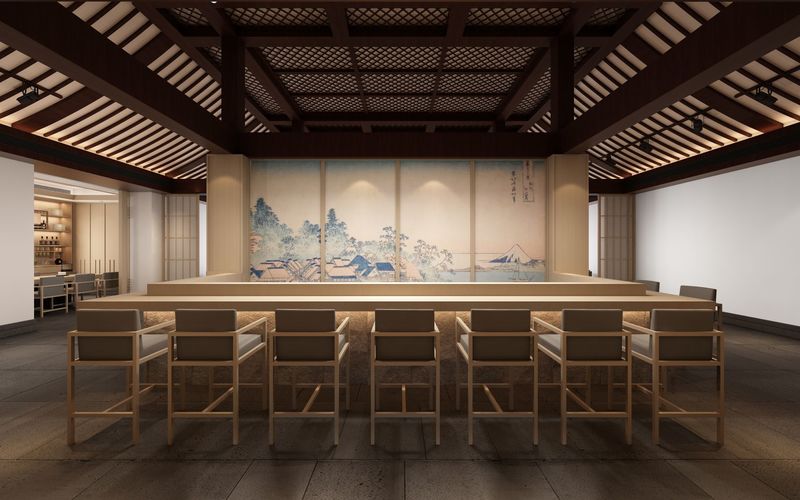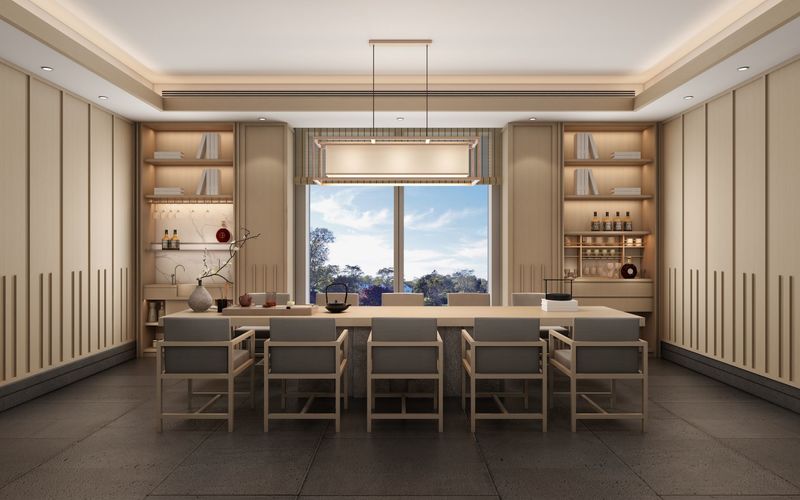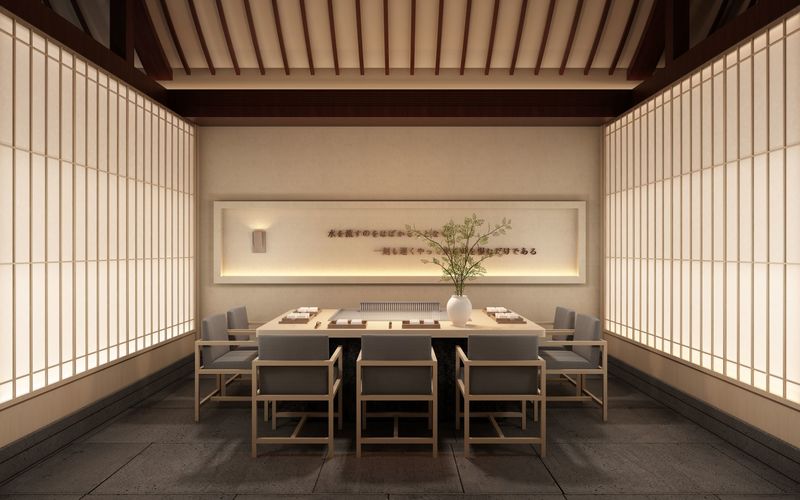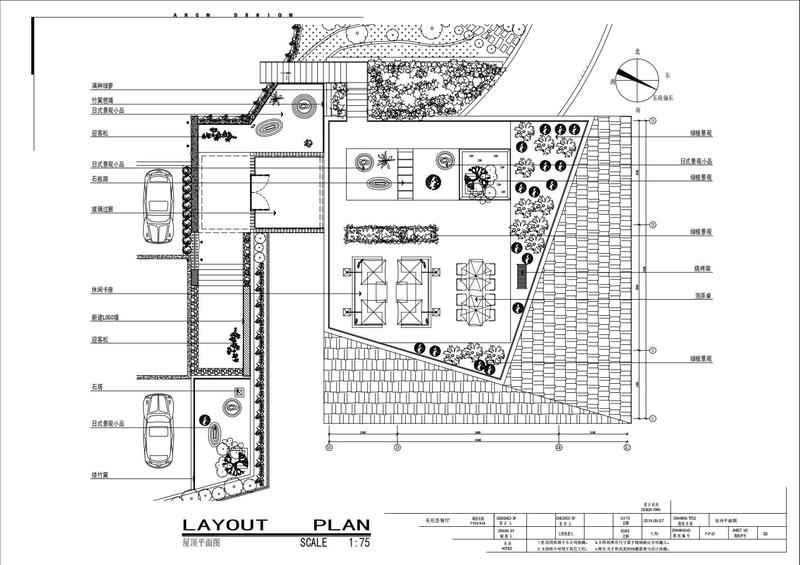本案位于大南山处招商美伦荟,为深圳最具老派绅士气质的会所,主打传统日式料理。怀石料理是一种与茶道关系密切的料理形式。古时禅院有将温热的石头放入怀中,空腹修行的习惯。怀石料理便是源于此习惯。由于怀石料理受到禅宗精神的影响,料理所选用的食材并不是山珍海味,而是与季节相符合的材料。如今所说的怀石料理,多指千利休初创的形式。本案传承‘安士桃山时代’千利修的‘侘寂’美学精神,以和,敬,清,寂,为美,直指人心
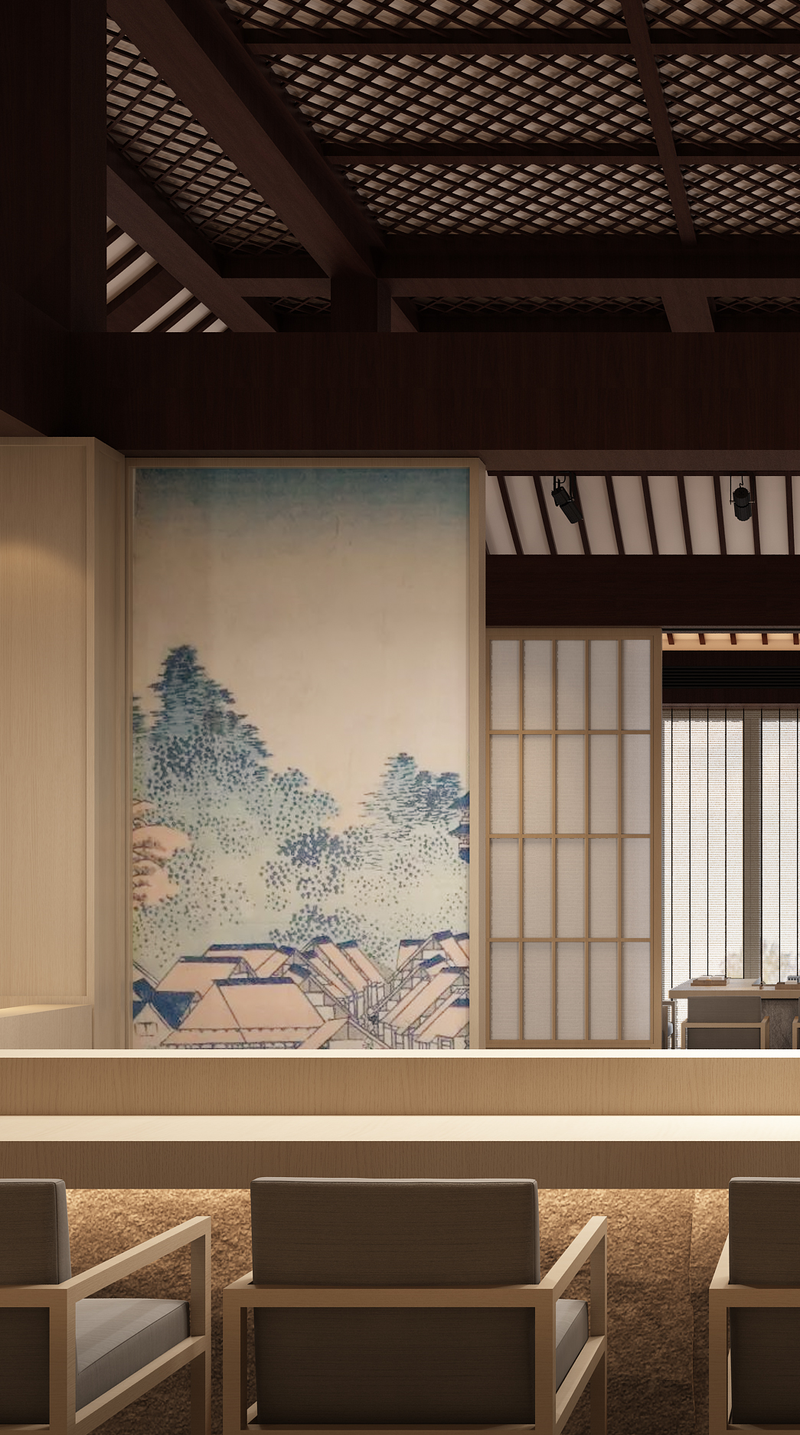
!This case is located in Dananshan Merchants Meilun Hui, which is the most old-school gentlemanly club in Shenzhen, focusing on traditional Japanese cuisine. Huaishi cuisine is a form of cuisine closely related to the tea ceremony. In ancient times, Zen monasteries had the habit of putting warm stones in their arms and practicing on an empty stomach. Huaishi cuisine is derived from this habit. As Huaishi cuisine is influenced by the spirit of Zen, the ingredients chosen for cooking are not delicacies, but materials in line with the seasons. Nowadays, the so-called Huaishi cuisine mostly refers to the start-up form of Qianlixiu. This case inherits the aesthetic spirit of ‘silence’ of the’an Shi Taoshan era’, with harmony, respect, clearness, stillness, beauty and straight to the hearts of the people!
